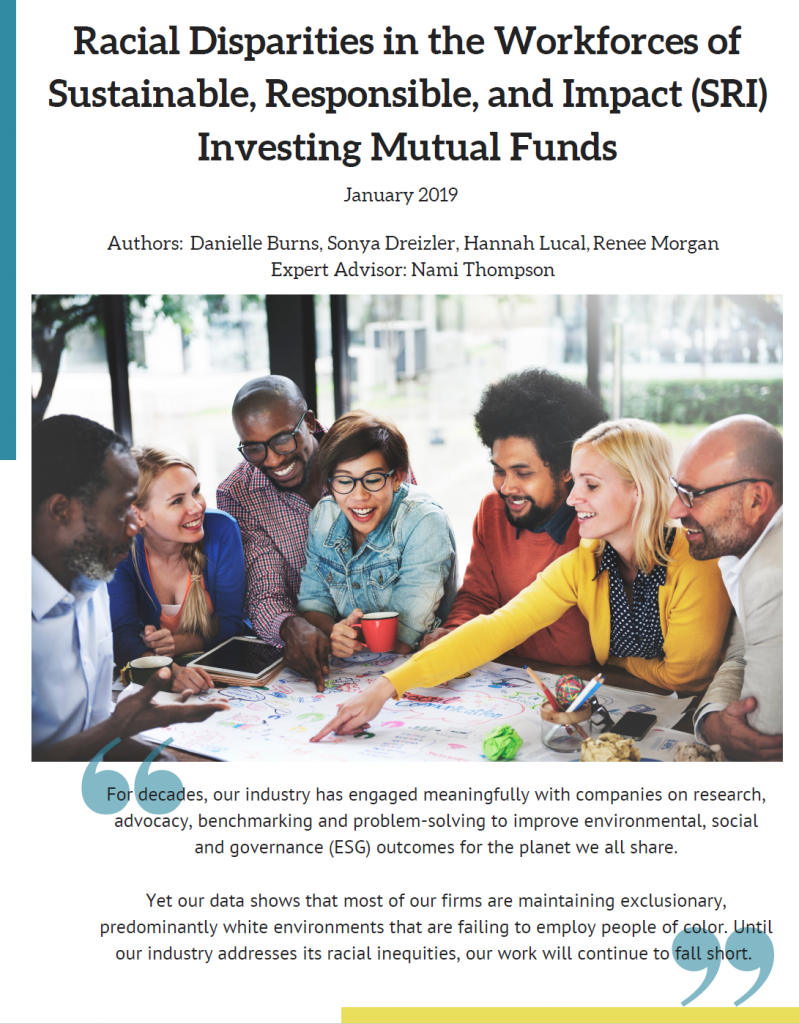America has been in a heated national dialogue about race these past few years. You can not open a newspaper or get on line without seeing the results of a reckoning, grappling and relearning of the impacts of hundreds of years of racial inequality and segregation in the United States. This may be even more difficult to address, and perhaps even more important, within our financial services sector.
This has been a deep focus of mine for the past five years. Most recently I decided to look at how our industry fares with racial diversity and representation. This stemmed from my belief that we will not solve any of our social and environmental ills with the same minds, people and points of view that got us here to begin with. I firmly believe that those most impacted by broken systems and policies are the ones that should lead us into the future.
With that in mind, I solicited the help of a few colleagues and we embarked on a six month project to collect data, analyze the results, and present to the industry and public. This paper should serve as an overview of how far we need to go.
While the results weren’t surprising, it was disconcerting to know that while we serve as the moral conscience of finance, we are failing pretty spectacularly in this area. One reason I thought we may have fared better is we have done a good job focusing on gender disparity in the industry. But it is clear by our data that, similar to most affirmative action and diversity initiatives, white women have benefited the most from those efforts. One of our conclusions is that we need to address the issue of “diversity” being more than just about gender.
There is a much longer and deeper paper to be written on why this is the case, but it is safe to say that the financial services industry itself, being the primary delivery tool for capitalism, is founded on racial inequality. It will take serious effort to revisit those roots and recreate systems that are more just. This paper was created as a way to be honest about where we are, and help push us all to be diligent and fearless in making the changes that are necessary to move into a more representative industry and just world.
Please take a minute to review the paper:

